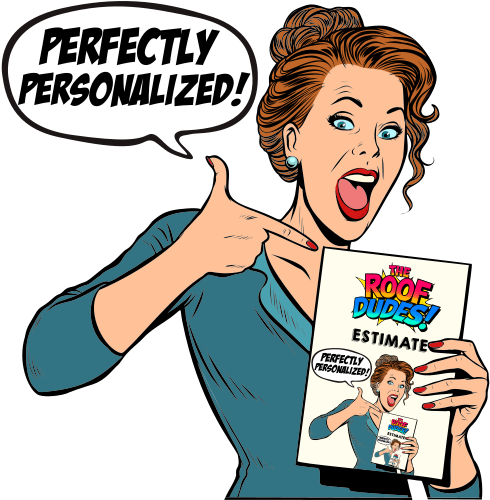Roofing: Commercial
Commercial Roofing: A Comprehensive Guide to Materials, Techniques, and When to Replace Your Roof
Commercial roofing is a vital aspect of any business or industrial building. It protects your property, employees, and assets from the elements and plays a key role in maintaining energy efficiency and safety. Whether you’re constructing a new building or considering a roof replacement, having a clear understanding of the materials, techniques, and timing involved in commercial roofing will help you make the best decisions for your business.
Types of Commercial Roofing Materials
Commercial roofing involves a variety of materials, each suited to specific building needs, climates, and budgets. Choosing the right roofing system is critical to ensuring longevity, performance, and cost-effectiveness.
1. Built-Up Roofing (BUR)
Built-up roofing is a traditional system commonly used in commercial applications. It consists of multiple layers of tar or asphalt, alternated with reinforcing materials, and finished with a layer of gravel or smooth coating.
- Pros: Proven durability, excellent UV protection, and reliable water resistance.
- Cons: Heavy weight, strong odor during installation, can be costly to install and maintain.
2. Modified Bitumen Roofing
Modified bitumen is similar to BUR but uses advanced technology for improved flexibility. It is composed of asphalt with modifiers like rubber or plastic, making it more durable and flexible than traditional asphalt systems.
- Pros: Flexible, strong, easy to maintain, and provides excellent waterproofing.
- Cons: Can be prone to punctures, and requires regular maintenance to ensure longevity.
3. TPO (Thermoplastic Polyolefin) Roofing
TPO is a single-ply roofing membrane made from thermoplastic materials. It’s one of the fastest-growing commercial roofing systems because of its energy efficiency and durability.
- Pros: Reflects sunlight, energy-efficient, cost-effective, and resistant to UV rays and chemicals.
- Cons: Seams can sometimes weaken over time if not installed properly, relatively newer material (long-term performance still being evaluated).
4. EPDM (Ethylene Propylene Diene Terpolymer) Roofing
EPDM is a synthetic rubber roofing membrane that has been used in commercial buildings for decades. Known for its durability, it is especially popular for low-slope roofs.
- Pros: Affordable, long-lasting (up to 30 years), easy to install, and highly resistant to extreme weather conditions.
- Cons: Black EPDM can absorb heat, though white reflective options are available. Seams may require additional attention to prevent leaks.
5. PVC (Polyvinyl Chloride) Roofing
PVC roofing is a single-ply membrane that is well-suited to flat or low-slope roofs. It offers excellent durability, flexibility, and energy efficiency, making it a popular choice for commercial and industrial buildings.
- Pros: Strong, resistant to chemicals and fire, energy-efficient, highly flexible.
- Cons: Can be more expensive than other single-ply membranes, not as environmentally friendly as other options.
6. Metal Roofing
Metal roofing is a durable, long-lasting option for commercial properties. It is commonly made from materials like steel, aluminum, or copper and can be coated for added protection against corrosion and weathering.
- Pros: Extremely durable, low maintenance, energy-efficient, and long lifespan (up to 50+ years).
- Cons: High upfront cost, may require additional insulation or soundproofing to minimize noise during rain or hail.
7. Green Roofing
Green roofs, also known as vegetative or eco-roofs, are growing in popularity for commercial buildings. They feature a layer of vegetation planted over a waterproof membrane, offering both environmental and aesthetic benefits.
- Pros: Environmentally friendly, helps with stormwater management, provides insulation, reduces urban heat island effect.
- Cons: High initial installation cost, requires regular maintenance, may need additional structural support for weight.
Commercial Roofing Techniques
The installation technique of your commercial roof is just as important as the material you choose. Proper techniques ensure the longevity of your roof and its ability to protect your building against the elements.
1. Roof Deck Inspection and Preparation
Before installing any roofing material, it’s essential to inspect the roof deck for any signs of rot, damage, or structural issues. For commercial roofs, this often includes repairing or replacing damaged sections to ensure a solid foundation for the new roofing system.
2. Single-Ply Membrane Installation
For materials like TPO, PVC, or EPDM, the membrane is rolled out across the roof deck and fastened or adhered in place. Seams are heat-welded or sealed with special adhesives to ensure a watertight finish. Proper seam sealing is critical for preventing leaks in flat or low-slope roofs.
3. Built-Up Roof (BUR) Installation
For BUR systems, multiple layers of asphalt or tar are alternated with reinforcing materials, such as felt or fiberglass. The final layer is often gravel or a smooth reflective coating to improve UV protection. The layers are installed in hot-mopped or cold-applied techniques, ensuring a strong, durable roof.
4. Spray Polyurethane Foam (SPF) Installation
SPF is a less common but highly effective method that involves spraying a liquid foam that expands into a solid layer of insulation and waterproofing. This technique is particularly effective for roofs with irregular shapes or surfaces.
5. Metal Roof Installation
Metal panels or sheets are installed in overlapping layers on a framework attached to the roof deck. Special care is taken to properly seal seams, fasteners, and flashings to prevent water intrusion. Metal roofs also benefit from coatings or paint to improve durability and energy efficiency.
6. Proper Insulation and Ventilation
Insulation and ventilation are essential components of any commercial roof. Proper insulation helps control building temperatures and reduces energy costs, while ventilation ensures moisture is removed from the roof space, preventing mold and rot.
Reasons for Replacing a Commercial Roof
There are many reasons why you might consider replacing your commercial roof, ranging from structural damage to energy efficiency concerns. Here are the most common factors that lead business owners to invest in a new roof.
1. Aging Roof
All roofing materials have a lifespan. While metal roofs can last up to 50 years, single-ply membranes and BUR systems have shorter lifespans, typically between 20 to 30 years. If your roof is nearing the end of its expected lifespan, it’s important to consider a replacement to avoid leaks and damage.
2. Storm Damage
Hail, high winds, and severe weather can cause significant damage to commercial roofs, especially if they are flat or low-sloped. Missing or damaged sections, punctures, and pooling water are signs that repairs or a full roof replacement may be necessary.
3. Leaks and Water Damage
A leaking roof is one of the most obvious signs that it’s time for a replacement. Water damage can lead to mold, structural issues, and damage to interior spaces, equipment, and inventory. If repairs are no longer cost-effective, a new roof is the best solution.
4. Energy Efficiency
Older roofs may not be equipped with the energy-efficient materials and technologies available today. Upgrading to a more energy-efficient roofing system, such as TPO or metal, can significantly reduce your heating and cooling costs and improve your building’s sustainability.
5. Structural Concerns
If your roof deck has deteriorated due to water damage, rot, or mold, it could compromise the structural integrity of the building. In such cases, a roof replacement is critical to ensure the safety of everyone in the building and to avoid costly repairs down the line.
6. Building Renovations or Expansions
If you’re planning an expansion or renovation of your commercial property, it may make sense to replace or upgrade the roof as part of the project. A new roof can enhance the building’s appearance and functionality while ensuring that the entire structure is properly protected.
Why Choose The Roof Dudes for Your Commercial Roofing Needs?
When it comes to commercial roofing, experience and expertise matter. At The Roof Dudes, we understand the unique challenges that commercial buildings face, from the materials required to the installation techniques that ensure long-lasting performance. We work with a wide range of commercial roofing systems, providing customized solutions that meet your business’s needs and budget.
Whether you need a full roof replacement, repairs, or a proactive inspection, we’re here to help. Our team offers free inspections and estimates, giving you a clear picture of your roof’s condition and helping you plan for the future. We believe in transparency, high-quality workmanship, and using only the best materials to protect your business and keep your operations running smoothly.
Don’t wait until a small problem becomes a costly issue—contact The Roof Dudes today and schedule your free commercial roofing inspection. Let us help you protect your property and ensure the long-term success of your business.







Get your free roofing quote today!
The Roof Dudes
2903 W New Haven Ave #4022
Melbourne FL 32904
(321) 222-7747
Careers
Residential Roofing
Commercial Roofing
Privacy Policy
Home
Copyright © 2024 The Roof Dudes
All rights reserved





